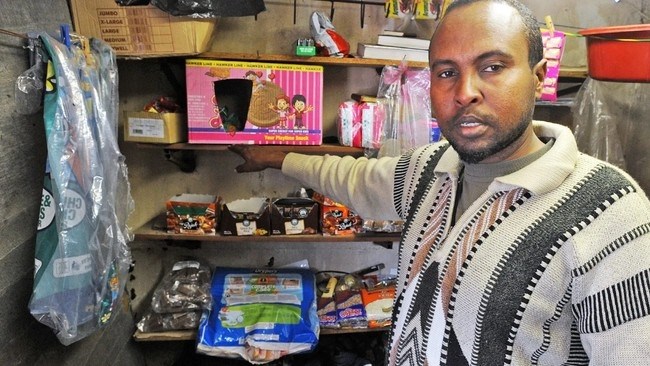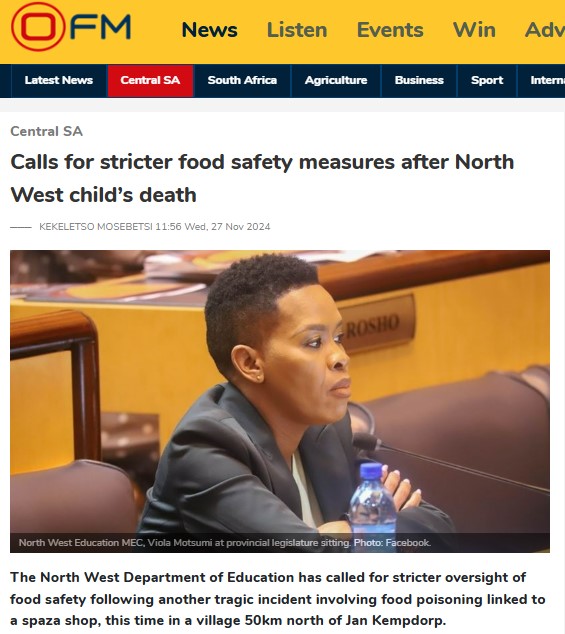Central SA
North West government to help locals reclaim spaza shops─── KEKELETSO MOSEBETSI 11:20 Fri, 07 Mar 2025

North West’s government has pledged to help residents to reclaim control over local businesses such as spaza shops, which are predominantly operated by foreign nationals.
Premier Lazarus Mokgosi said in his response to the state of the province address (Sopa) debate in the provincial legislature in Mahikeng on Thursday (6/3) concrete plans are underway to help local communities regain dominance in the spaza shop market.
He said the provincial government, in partnership with the Department of Small Business Development, aims to ensure South Africans benefit from the recently announced R500 million fund. This initiative is designed to support locals and help them take back control of the market, which has seen an influx of foreign-owned spaza shops in recent years.
The issues surrounding spaza shops dominated by foreign nationals emerged last year when several children across the country fell seriously ill, with some tragically losing their lives after consuming food products sold in foreign-owned spaza shops. The incidents raised alarm, prompting the North West Department of Education to call for stricter oversight of food safety in these informal retail outlets.
Following the raising concerns, President Cyril Ramaphosa issued an instruction requiring all tuck shops and food handling facilities to register their businesses with the relevant municipalities. This process, which aimed to ensure better regulation and monitoring of these businesses, concluded on Friday, 28 February.
North West Department of Cooperative Governance conducted extensive inspections of spaza shops across North West, uncovering significant non-compliance with local regulations. Over 4,000 inspections were carried out, and more than 250 spaza shops were found to be failing to meet the required standards outlined in the Standard Draft By-Laws.
The Head of Department for Co-operative Governance in North West, Dr. Ben Bole, reported 8,000 applications for licenses were received, and 273 spaza shops were found to be non-compliant with the regulations. As a result, 73 spaza shops were immediately shut down to protect public health and safety.
Bole said the department’s efforts were part of a broader strategy to ensure local business owners adhere to the set standards while also addressing the issue of foreign ownership in the spaza shop sector.
OFM News/Kekeletso Mosebetsi dg














